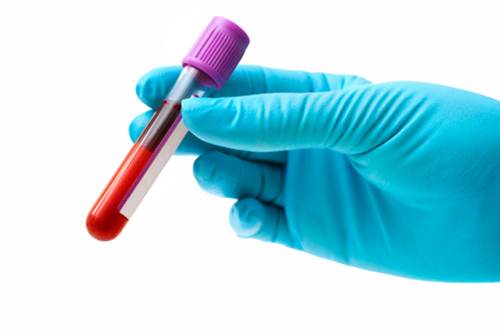Medical research has made a significant breakthrough in the early detection of cancer. A new blood test, fast and cheap, could detect the disease even before symptoms become evident.
Cancer is one of the most feared diseases in the world. Its early diagnosis is essential to increase the chances of survival and to ensure effective treatment. But how can we identify it before symptoms become apparent? The answer may lie in a simple blood test.
A new approach to diagnosis
Researchers at Rockefeller University have developed a highly sensitive blood test that detects a key protein produced by cancer cells. This protein, called LINE-1 ORF1p, is gaining more and more attention in the scientific world as a biomarker for early cancer diagnosis.
Why? LINE-1 ORF1p is a protein produced in large quantities in many of the most common and lethal cancers, such as those of the esophagus, colon, lung, breast, prostate, ovary, uterus, pancreas and head and neck. Its presence in the blood could indicate the presence of cancer cells in the body, even before symptoms become apparent. The study was published in the journal CancerDiscovery.
The science behind the test
The human body has mechanisms that prevent the expression of LINE-1 and the production of ORF1p. However, when this protein is expressed, it could indicate that something is wrong. “You shouldn't find ORF1p in the bloodstream of a healthy person,” he said John LaCava, one of the study's co-authors.
The blood test developed by the researchers is not only highly sensitive, but also fast and economical. It can detect the presence of ORF1p in blood plasma in less than two hours and costs less than $3 (converted into euros, around €2,60 at the time of research). This makes it accessible and potentially usable as a routine screening tool.
We were shocked by how well this test worked on different types of cancer
Martin Taylor lead author of the study.

Beyond a blood test, beyond the diagnosis: monitoring the effectiveness of the treatment
The "happy" side effect of a test like the one developed at Rockefeller is that, in addition to diagnosing cancer, it can also be used to evaluate the effectiveness of therapies. If a treatment is working, there should be a decrease in ORF1p levels in the patient. This could offer doctors a way to monitor a patient's response to treatment in real time.
The research is still in its early stages, but the results are incredibly promising. With further studies and validation, this test could become a standard tool in the diagnosis and in cancer monitoring. The fight against cancer is one of the greatest medical challenges of our time. Every advance, big or small, brings us closer to a world where cancer can be diagnosed and treated effectively. This new blood test represents a significant step in this direction, offering hope to millions of people around the world.


